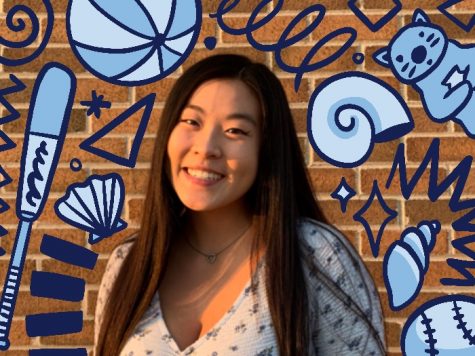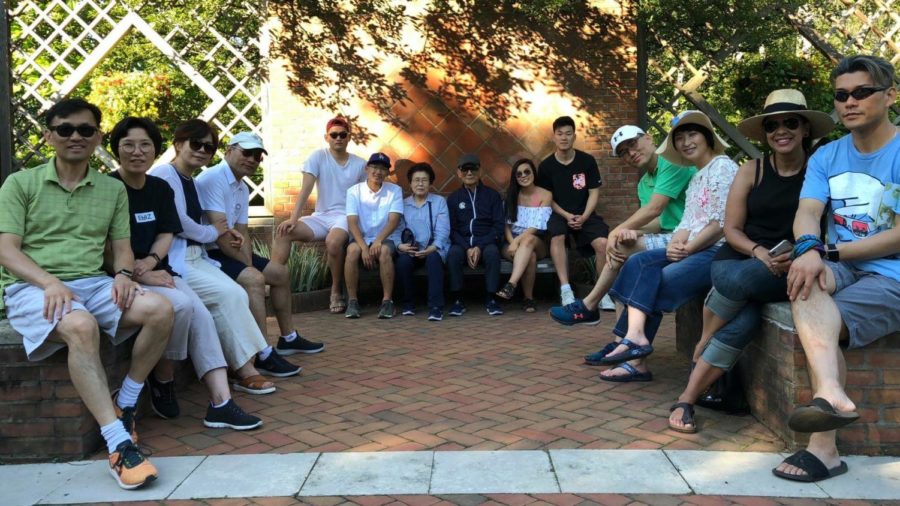Best of both lives: How I accepted my identity
Over the years, I have become more accepting of myself and representing who I am.
My name is Ariel Oh. I am Korean; my favorite subject is math; I like eating rice; I play the piano and have a black belt in karate; also, I aspire to be a doctor, and if that doesn’t work out, I would like to be a lawyer.
I have grown up with “tiger-parents” all my life. I don’t go to parties, use social media or have many friends. Instead, I spend all of my time studying and listening to K-pop. I am fluent in Korean, but speaking English is tough for me since I am from Asia.
Were you able to recognize the sarcasm?
These are all stereotypes very commonly associated with Asian people. While doing these sorts of activities and having these aspirations as an Asian person is okay, associating these labels with every Asian person you come across is not.
As I grew up, I felt very out of place because I wasn’t white. My “yellow” skin got granted the title of being “exotic,” and I felt like an outsider. So here I was, given the ultimatum of either conforming with my majority-white peers or conforming to my Korean culture, but neither option allowed me to be who I truly was.
I felt like I had to act as though I was the opposite of every Asian stereotype because if someone caught me doing anything that could remotely relate back to me being Asian, I was weird.
For example, I quickly learned from a young age to stop bringing my Korean rice and soup dishes to lunch and instead bring sandwiches and juice boxes, or I would start to do things like wear “Hollister” or “American Eagle” to “look less Asian.”
I also learned to notice the uncomfortable looks my grandparents would give me when I could only speak English, or the times I found myself at family reunions being the only one not able to understand what anybody was saying.
As more people questioned my culture, I did too. The more I detached myself from my culture, the more I found myself making more friends, going to more parties and getting more likes on my Instagram posts. Worst of all, I was convinced the only way I could fit in was to assimilate to my friends so they would like me more.
However, as I became older, more people I knew began embracing their cultures. The best part about it was that they didn’t care what other people thought of them. Seeing other people lead by example encouraged me to come out of my shell a little more and help me be myself.
For the longest time, I had always felt there could be no in-between when it comes down to the culture you embrace, but after taking a step back, I realized I could be the in-between I craved. My culture can bring positivity, and I shouldn’t feel like I have to hide that.
I don’t have to “act white” or “act Asian” to try and be similar to my friends. If my friends are truly my friends, they won’t care whether or not I express myself through my culture. Fortunately, my friends are accepting of who I am and encourage me to go back to my roots.
I also realized that I don’t have to hide being Asian; I could use it to my advantage. For example, while I do wish there was more representation in the sports I play and the activities I lead in, it also gives me the opportunity to lead as an Asian-American. This can get other Asian-Americans or people of color in general to know there is representation in something they may be interested in.
I also shouldn’t feel secluded from being involved in my own culture. In the summer, I am going to South Korea. While at first I was terrified and didn’t want to go because I felt like I would be judged by everybody there, I realized this is a great opportunity for me to build the relationship between me and my culture.
Suzette Won Haas once said that being Asian-American is “feeling like the hyphen in between the Asian and American in Asian-American.” Balancing my identity between being Asian and being American is something I am working to become prouder of, and I hope I can be fully comfortable with it sooner than later.
So let’s try this again. My name is Ariel Oh.
I am Korean, and I’m actually pretty bad at math, but I still like eating rice. I can’t play the piano anymore and barely even know what karate is. There is no way I have an interest in doing law cases for a living. I love parties, am a professional procrastinator and can barely name foods in Korean.
While I am very Asian, I am also very American, and I’m living the best of both worlds.



